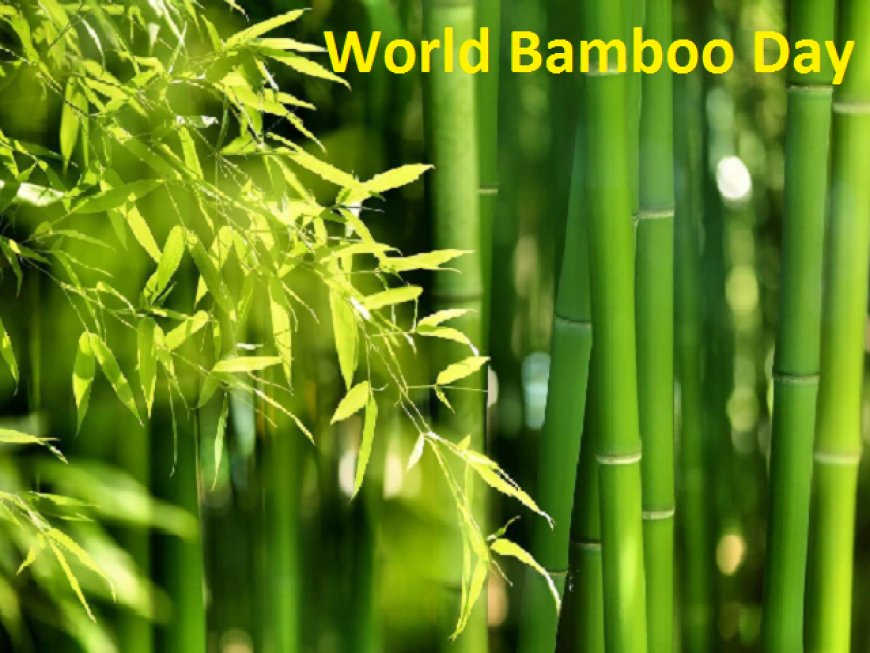World Bamboo Day: Celebrating the Wonder of Bamboo
Celebrate World Bamboo Day by exploring bamboo’s eco benefits, cultural value, and its role in building a sustainable future.

World Bamboo Day: Celebrating the Wonder of Bamboo
Introduction to World Bamboo Day
World Bamboo Day is celebrated every year on September 18th to raise awareness about the importance of bamboo and to promote its sustainable use across the globe. Initiated by the World Bamboo Organization in 2009, this day highlights bamboo’s role in protecting the environment, supporting rural livelihoods, and contributing to economic development.
The Significance of Bamboo in Our Lives
Bamboo is more than just a plant — it is a fast-growing, renewable resource with thousands of uses. It can grow up to a meter in a single day, making it one of the fastest-growing plants on Earth. From construction materials to clothing, furniture, food, and paper, bamboo plays a vital role in various industries worldwide.
It also serves as a crucial tool in carbon sequestration, absorbing large amounts of carbon dioxide and releasing 35% more oxygen than an equivalent stand of trees. This makes bamboo a powerful ally in the fight against climate change.
Environmental Benefits of Bamboo
Bamboo contributes significantly to ecological balance. Its extensive root systems help prevent soil erosion and retain water in the ground, which improves soil fertility and reduces flooding. Bamboo plantations also provide a safe habitat for wildlife and contribute to the overall health of ecosystems.
Moreover, bamboo requires minimal pesticides and fertilizers, making it an eco-friendly crop for farmers. Its ability to grow in degraded soils further adds to its sustainability value.
Economic and Social Importance
Bamboo is often called the “green gold” of rural economies. Millions of people across Asia, Africa, and Latin America depend on bamboo-based livelihoods. Bamboo offers raw materials for housing, furniture, handicrafts, textiles, and even bioenergy.
By encouraging bamboo cultivation and industry, countries can generate employment opportunities and promote sustainable rural development, especially in regions with high poverty levels.
Bamboo and Cultural Heritage
In many cultures, bamboo symbolizes strength, resilience, and flexibility. It plays a vital role in traditional arts, music instruments, ceremonies, and architecture. From Japanese tea ceremonies to Indian handicrafts, bamboo is deeply woven into cultural traditions and heritage.
How to Celebrate World Bamboo Day
-
Plant bamboo saplings in your community or garden.
-
Support bamboo-based products from local artisans and businesses.
-
Educate others about bamboo’s environmental and economic benefits.
-
Organize workshops or awareness events on bamboo cultivation and sustainable usage.
-
Share facts and stories about bamboo on social media using hashtags like #WorldBambooDay and #GoGreenWithBamboo.
Conclusion
World Bamboo Day reminds us that bamboo is not just a plant — it is a symbol of sustainability, resilience, and hope for a greener planet. By supporting bamboo cultivation and its diverse uses, we can protect the environment, empower local communities, and promote a more sustainable future.
Let’s celebrate this day by embracing bamboo as a natural solution to many of the challenges our world faces today.

 Ellofacts
Ellofacts 





